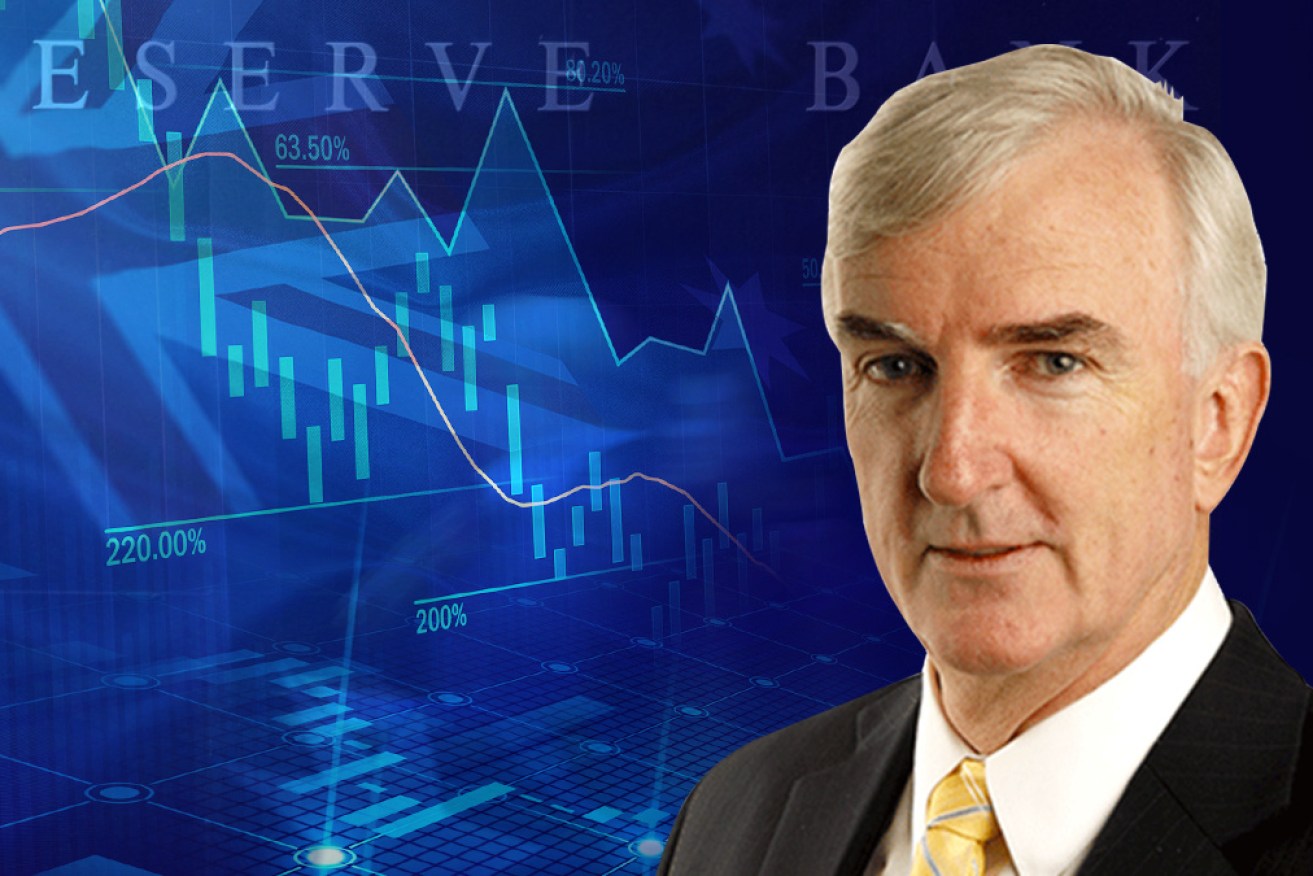Michael Pascoe: ‘Desperation’ joins ‘fear and greed’ as sharemarket hits record high


Investors shouldn’t think the bubble is going to last forever, writes Michael Pascoe. Photo: The New Daily
So the Australian stockmarket reached a new high (for a little while) on Monday morning. For we are jolly good fellows and so say all of us – just don’t think that it makes us investment geniuses.
Self-congratulations and delusions of wisdom are common when a bubble is on the boil.
They are dangerous traits, particularly for the reported legion of novice traders/investors who piled into markets and related sideshows this year.
Even the most casual of observers will have noticed that just about everything that can be invested in or speculated upon is on the up and up. As long as you are in the game, any game, you are a winner.
Extremely cheap money, the cheapest money the world has ever experienced, will do that for you.
That cheap money, incomprehensible trillions of it, has added a couple of new dimensions to this particular bubble.
On top of the usual mixture of fear and greed that drives what people do with money, British commentator Anthony Peters earlier this year identified a third factor for the first time in his several decades of investing: Desperation.
Just to park money, institutions have bought squillions of dollars of bonds offering a negative yield. They are guaranteed to lose money when held to maturity.
People desperate to make a return, any sort of return in this environment, have disregarded the usual disciplines of risk/reward and taken much greater risks buying junk for precious little reward in bond markets.
Mr Peters suggested desperation played a role in Credit Suisse buying Greensill’s debt and in the Credit Suisse clients who subsequently bought into it.

Credit Suisse suffered significant losses after the collapse of Archegos. Photo: Getty
And talking of Credit Suisse failures, it looks like being the bank that has lost the most in the $US10 billion collapse of Archegos, Bill Hwang’s family investment company.
Yes, “a family investment company”, a class of player that has exploded as the world has concocted great wealth and much greater inequality.
Such companies are more opaque and many, like Archegos, are heavily geared.
Whenever gearing becomes extensive, risks multiply. Money might be cheap, but it still isn’t nice to lose it and excessive gearing in an attempt to increase returns leads to a fragile system.
The Financial Times’ Gillian Tett reported that while it was startling that little-knowns Archegos could amass loans of $US50 billion from banks for its geared equities play, it was more startling that it was far from the only fund racking up large margin debt.
“Data collected by the Financial Industry Regulatory Authority shows that total margin debt across Wall Street hit $US822 billion by the end of March – after Archegos had failed,” she reported.
“That was almost double the $US479 billion level of this time last year and far more than the around $US400 billion peak that margin debt reached in 2007, just before the financial crisis.
“To put these numbers in context, ABP Invest, a London-based fund, calculates that during the 2000 dotcom and 2007 credit booms, US margin debt topped out at roughly 3 per cent of gross domestic product. Now it is nearly 4 per cent.”
Mr Peters and other old heads believe Greensill and Archegos are but the tip of an iceberg.
If we’re seeing such massive failures now, while the money is still be pumped out by central banks and markets are rising, what might lurk beneath when the tide starts going out?
The Australian stockmarket is not at the sharp end of the global investment bubble, but it will eventually be caught up in its unravelling.
Investors in real companies that make real profits and pay real dividends will be able to ride out the storm when it comes, as they have in every other bust.
We don’t have America’s SPAC phenomenon – “special purpose acquisition companies” that are floated at a premium on the promise of buying something else. It reeks of desperation with a touch of FOMO – “fear of missing out”.
FOMO itself has been joined by another acronym: TINA – “there is no alternative”.
Investors with money keep piling in because they can’t find anything else to do their cash – leaving it in a bank earns nothing.
The general view is that the party will be over when central banks start taking away the punchbowl they’ve spiked, but the risks of massive leveraged speculation could yet provide a different trigger.
The problem with bubbles though is knowing when they’re going to pop.

The ASX briefly hit a new record high on Monday.
The views of investment legend Jeremy Grantham previously reported here apply – institutional investors tend to be strapped into riding the rollercoaster until it crashes.
The ride can continue long beyond what might seem reasonable, frustrating the cautious.
“When price rises are very rapid, typically toward the end of a bull market, impatience is followed by anxiety and envy,” warns Grantham.
“As I like to say, there is nothing more supremely irritating than watching your neighbours get rich.”
It is a nice time to enjoy looking at rich returns, the illusion of great wealth in the shelter you inhabit, the glow of your super fund, even the mania of crypto collectables (no, they are not currencies) and the Tesla share price, but it’s not a time to stray from the fundamentals of investing in diversified value, to not be greedy, to not be desperate on the excuse of TINA.
P.S. The much-better gauge of Australian equities – the total return index that includes our much-loved dividends – was already at record levels.








